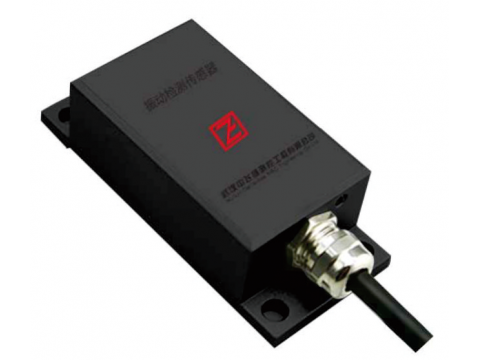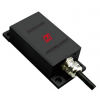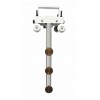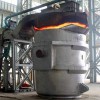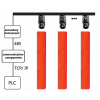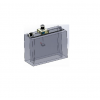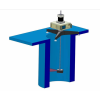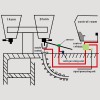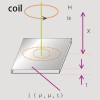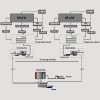Overview
Mold is the casting billet forming equipment in continuous steel casting, and it is also the core equipment and key technology of continuous casting machine. Its function is to forcibly cool the high-temperature molten steel continuously injected into its inner cavity through the water-cooled copper plate to export its heat and to gradually solidify it into a casting billet with the required cross-sectional shape and billet shell thickness. And the casting billet, which is still in liquid state, is continuously pulled out from the lower nozzle of the mold to create conditions for casting billet to be completely solidified in the subsequent secondary cooling area.
The main function of the mould oscillation device is to make the mould perform mechanical movement according to the given characteristics of amplitude, frequency and waveform deflection. The purpose is to facilitate demoulding and prevent the occurrence of sticking and breakout accidents due to the bonding of the casting billet with the copper wall of the mold during the solidification process.
MOC-K100 mould oscillation online monitoring system can three-dimensionally detect the positive and negative frequencies and waveform characteristics of the mould oscillation. The online changing data is provided in real time, which provides convenient and effective detection methods for on-site inspection personnel.
The parameters of the system
1. Number of measurement channels: According to the mold design, up to 16 sensors can be arranged
2. Sensor: three-dimensional oscillation sensing (X, Y, Z three axes)
3. Sensitivity: 1000mV/g
4. Frequency range: 0.04~10HZ
5. Frequency accuracy: ±0.01 Hz
6. Amplitude accuracy: 0.005mm
7. Transmission mode: wired digital transmission; wireless transmission
8. Host: 3U standard rack; handheld device
9. Sensor power supply: 24V.DC
10. Host power supply: 220V.AC/50Hz

The structure of the system
The main components of the continuous casting mould online oscillation detection system are:
1. Three-dimensional oscillation measurement sensor
2. Handheld oscillation sensor calibrator
3. Dedicated signal connection cable
4. Preamplifier
5. Operation processing unit
6. Graphic display terminal
7. Industrial Ethernet (TCP/IP) or PROFIBUS-DP communication components
8. Control cabinet


